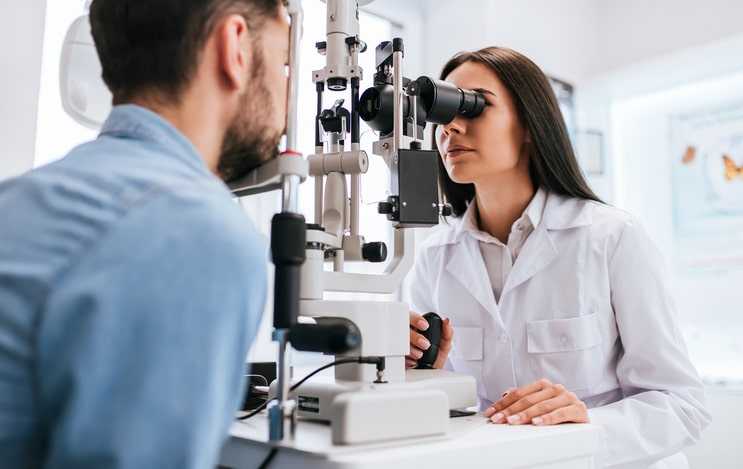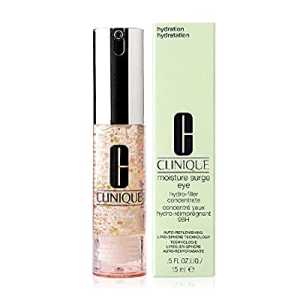
The Role Of An Eye Specialist In Managing Chronic Eye Diseases

Chronic eye diseases can significantly impact your quality of life, affecting not just vision but overall well-being. Eye specialists—ophthalmologists and optometrists—play a pivotal role in managing these conditions, helping patients maintain vision and quality of life through ongoing care and innovative treatments.
If you're searching for an eye specialist in Chinchwad, it's important to know they play a vital role in managing chronic eye diseases. From glaucoma to macular degeneration, these experts provide ongoing care that can slow disease progression and preserve vision. Regular visits to an eye specialist ensure that any changes in your condition are detected early, allowing for timely treatment adjustments and better long-term outcomes.
This article explores the critical role eye specialists play in managing chronic eye diseases and how their expertise contributes to better patient outcomes.
Understanding Chronic Eye Diseases
Chronic eye diseases are long-lasting conditions that often develop gradually, sometimes without noticeable symptoms until they reach advanced stages. These diseases can include:
- Glaucoma
- Age-Related Macular Degeneration (AMD)
- Diabetic Retinopathy
- Dry Eye Syndrome
- Retinitis Pigmentosa
Each of these conditions requires specialized care and management, highlighting the essential role of eye specialists in providing effective treatment and support.
1. Glaucoma Management
Glaucoma is a group of eye conditions that damage the optic nerve, often due to elevated intraocular pressure. It’s one of the leading causes of blindness if left untreated. Eye specialists are crucial in managing glaucoma through:
- Regular Monitoring: Eye specialists use tonometry to measure intraocular pressure and assess the health of the optic nerve. Regular eye exams help monitor disease progression and adjust treatment as needed.
- Medication Management: Medications, such as eye drops that lower intraocular pressure, are commonly prescribed. Eye specialists ensure that patients adhere to their medication regimen and make adjustments based on treatment efficacy and side effects.
- Surgical Interventions: In some cases, surgical options like laser therapy or trabeculectomy may be necessary to control intraocular pressure. Eye specialists perform these procedures and provide post-operative care to ensure optimal outcomes.
2. Age-Related Macular Degeneration (AMD)
Age-Related Macular Degeneration is a progressive disease that affects the macula, the central part of the retina responsible for detailed vision. There are two types of AMD: dry and wet. Eye specialists play a vital role in managing AMD by:
- Early Detection: Regular eye exams, including retinal imaging, help detect AMD in its early stages. Early intervention can slow disease progression and preserve vision.
- Treatment Options: For dry AMD, eye specialists may recommend dietary changes, vitamins, and lifestyle modifications. For wet AMD, treatments such as anti-VEGF injections, photodynamic therapy, or laser treatment are used to manage abnormal blood vessel growth and leakage.
- Patient Education: Eye specialists provide guidance on managing symptoms and making lifestyle adjustments to cope with vision changes. They also offer resources and support to help patients adapt to vision loss.
3. Diabetic Retinopathy
Diabetic Retinopathy is a complication of diabetes that affects the blood vessels in the retina, leading to potential vision loss. Eye specialists are instrumental in managing diabetic retinopathy through:
- Routine Eye Exams: Regular dilated eye exams are essential for detecting early signs of diabetic retinopathy, such as microaneurysms, hemorrhages, and exudates. Early detection allows for timely intervention and prevents vision loss.
- Treatment Strategies: Treatment may include laser therapy to reduce retinal swelling, anti-VEGF injections to address abnormal blood vessel growth, and corticosteroids to manage inflammation. Eye specialists tailor treatment plans based on the severity of the disease.
- Diabetes Management: Eye specialists work closely with endocrinologists and primary care physicians to ensure comprehensive diabetes management, as controlling blood sugar levels is crucial for preventing and managing diabetic retinopathy.
4. Dry Eye Syndrome
Dry Eye Syndrome occurs when the eyes do not produce enough tears or the tears evaporate too quickly, leading to discomfort and potential damage to the cornea. Eye specialists manage dry eye syndrome through:
- Diagnosis: Comprehensive eye exams, including tests for tear production and tear film quality, help diagnose dry eye syndrome. Eye specialists use these assessments to determine the underlying cause and appropriate treatment.
- Treatment Options: Management strategies may include artificial tears, anti-inflammatory medications, punctal plugs to reduce tear drainage, and lifestyle modifications. Eye specialists customize treatments based on the severity and cause of dry eye symptoms.
- Patient Education: Eye specialists educate patients on managing dry eye symptoms, such as avoiding environmental triggers, using humidifiers, and practicing good eye hygiene.
5. Retinitis Pigmentosa
Retinitis Pigmentosa is a group of inherited diseases that cause progressive degeneration of the retina, leading to vision loss. Eye specialists play a critical role in managing retinitis pigmentosa through:
- Genetic Testing: Eye specialists may recommend genetic testing to identify specific mutations causing retinitis pigmentosa. This information can help guide treatment and provide insights into disease progression.
- Adaptive Technologies: Eye specialists help patients adapt to vision loss by recommending assistive technologies, such as magnifiers and electronic reading devices, to enhance daily living.
- Ongoing Research and Treatments: Eye specialists stay informed about advancements in research and emerging treatments, including gene therapy and retinal implants, that may offer new options for managing retinitis pigmentosa.
The Importance of Regular Monitoring and Comprehensive Care
Managing chronic eye diseases requires ongoing monitoring and a comprehensive approach to care. Eye specialists play a crucial role in:
- Early Detection and Intervention: Regular eye exams enable early detection of chronic eye diseases, allowing for timely intervention and treatment to prevent vision loss.
- Coordinated Care: Eye specialists often work in conjunction with other healthcare providers, such as primary care physicians and endocrinologists, to ensure a holistic approach to managing chronic diseases.
- Patient Support and Education: Eye specialists provide valuable support and education, helping patients understand their conditions, adhere to treatment plans, and make necessary lifestyle adjustments.
Finding the Right Eye Specialist
Choosing the right eye specialist is essential for effective management of chronic eye diseases. Here are some tips for finding a qualified specialist:
- Check Credentials: Ensure the eye specialist is board-certified and has experience in managing chronic eye diseases.
- Read Reviews: Look for online reviews and ask for recommendations from friends or family to find a reputable eye specialist.
- Consider Specialization: For specific chronic eye diseases, seek a specialist with expertise in that particular area.
Conclusion
Eye specialists in Chinchwad are integral to the management of chronic eye diseases, offering early detection, personalized treatment plans, and ongoing support. By partnering with an eye specialist, patients can effectively manage chronic conditions, preserve their vision, and improve their quality of life. Regular eye exams and comprehensive care are essential for maintaining eye health and addressing chronic diseases promptly. Prioritize your eye health and seek the expertise of a qualified eye specialist to ensure the best possible outcomes for managing chronic eye diseases.
Author Bio
Article Comments
No Comments!
At present there are zero comments on this article.
Why not be the first to make a comment?
Similar Articles
Search Pages
FreshStore AI Store Affiliate System
Article Categories
There are zero sub-categories in this parent category.
There are zero sub-categories in this parent category.












